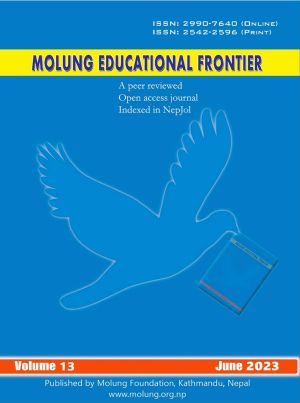Rethinking Madhesi Politics of Recognition
DOI:
https://doi.org/10.3126/mef.v13i01.56080Keywords:
economic inequality, class, caste, politics of recognition, pan-Madhesi identityAbstract
A gradually emerging dissension in the micro politics of the Madhesi community has not received the attention it deserves in scholarly discourse. This article makes an effort to understand the contexts and processes that made pan-Madhesi identity intrinsically problematic and seemed to be rife with internal conflicts. Drawing on the lived experiences collected through ethnographic interviews with the Madhesi people who belonged to the low-caste groups and admitted to being poor, it is argued that while overemphasizing the socio-cultural recognition of the Madhesi community, Madhesi politics of recognition undermined the issues of economic inequality prevailing within it for a long time. As a consequence, over time, the ties of low-caste groups with the elitist leadership of high and middle-caste groups in terms of socio-cultural and economic aspects resulted in certain fissures or divisions in the Madhesi community. This prompts us to rethink the Madhesi politics of recognition and to argue that pan-Madhesi identity was not a cohesive identity that guaranteed parity of participation of the Madhesi population irrespective of their caste and class position.
Downloads
Downloads
Published
How to Cite
Issue
Section
License
© Molung Foundation




